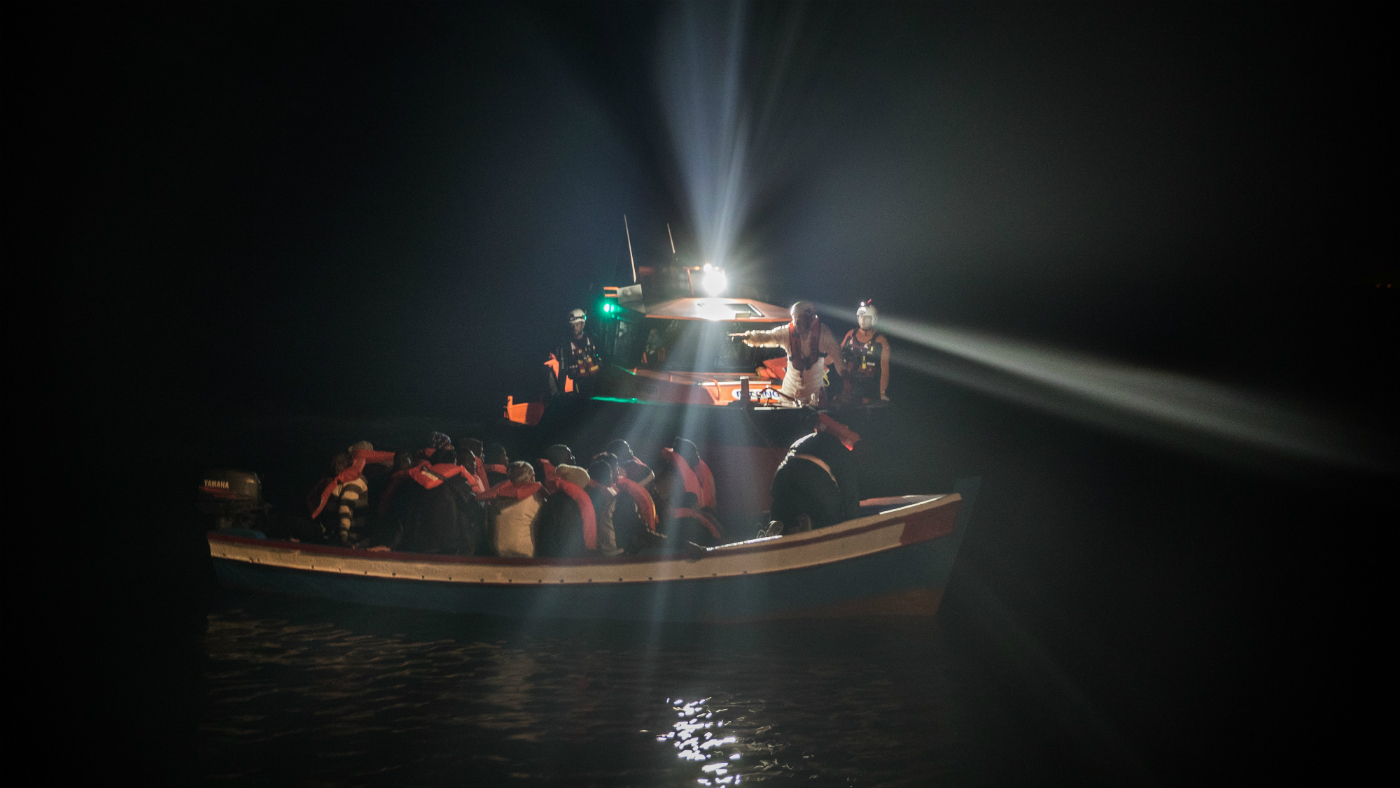EU rescue mission leads to migrant deaths
An EU rescue programme to deter migrants instead encourages people-smugglers to send migrants in unseaworthy vessels, UK report says

A free daily email with the biggest news stories of the day – and the best features from TheWeek.com
You are now subscribed
Your newsletter sign-up was successful
An EU anti-people smuggling operation likely led to more deaths as smugglers changed tactics and crammed migrants into smaller, less seaworthy vessels, according to a House of Lords report.
Operation Sophia - a pan-European mission including the British HMS Enterprise - aimed to stop Libyan boats capable of smuggling hundreds of passengers. Instead, traffickers switched to smaller, inflatable boats that were more dangerous, The Daily Telegraph reports citing the House of Lords EU External Affairs Sub-Committee report.
The change in tactics "resulted in more deaths at sea of refugees and migrants", The Guardian says.
The Week
Escape your echo chamber. Get the facts behind the news, plus analysis from multiple perspectives.

Sign up for The Week's Free Newsletters
From our morning news briefing to a weekly Good News Newsletter, get the best of The Week delivered directly to your inbox.
From our morning news briefing to a weekly Good News Newsletter, get the best of The Week delivered directly to your inbox.
The death rate among migrants attempting to cross the Mediterranean to enter Europe has almost doubled in a year. In the first five months of 2017, the mortality rate rose from 1.2 per cent to 2.3 per cent compared to the same period in 2016, UN agency data shows.
More than 4,500 migrants died trying to cross the Mediterranean from Libya to Italy in 2016 - a 42 per cent increase over the previous year, the BBC reports.
"People smuggling begins onshore, so a naval mission is the wrong tool for tackling this dangerous, inhumane and unscrupulous business," said Baroness Verma, chair of the committee, but she noted the mission had been a "humanitarian success".
While the committee was scathing in its assessment of Operation Sophia, it noted that search and rescue work in the Mediterranean should continue as it had saved many lives and that UK ships had led to fewer children drowning, the BBC says.
A free daily email with the biggest news stories of the day – and the best features from TheWeek.com
-
 Tourangelle-style pork with prunes recipe
Tourangelle-style pork with prunes recipeThe Week Recommends This traditional, rustic dish is a French classic
-
 The Epstein files: glimpses of a deeply disturbing world
The Epstein files: glimpses of a deeply disturbing worldIn the Spotlight Trove of released documents paint a picture of depravity and privilege in which men hold the cards, and women are powerless or peripheral
-
 Jeff Bezos: cutting the legs off The Washington Post
Jeff Bezos: cutting the legs off The Washington PostIn the Spotlight A stalwart of American journalism is a shadow of itself after swingeing cuts by its billionaire owner
-
 Epstein files topple law CEO, roil UK government
Epstein files topple law CEO, roil UK governmentSpeed Read Peter Mandelson, Britain’s former ambassador to the US, is caught up in the scandal
-
 Iran and US prepare to meet after skirmishes
Iran and US prepare to meet after skirmishesSpeed Read The incident comes amid heightened tensions in the Middle East
-
 Israel retrieves final hostage’s body from Gaza
Israel retrieves final hostage’s body from GazaSpeed Read The 24-year-old police officer was killed during the initial Hamas attack
-
 China’s Xi targets top general in growing purge
China’s Xi targets top general in growing purgeSpeed Read Zhang Youxia is being investigated over ‘grave violations’ of the law
-
 Panama and Canada are negotiating over a crucial copper mine
Panama and Canada are negotiating over a crucial copper mineIn the Spotlight Panama is set to make a final decision on the mine this summer
-
 Why Greenland’s natural resources are nearly impossible to mine
Why Greenland’s natural resources are nearly impossible to mineThe Explainer The country’s natural landscape makes the task extremely difficult
-
 Iran cuts internet as protests escalate
Iran cuts internet as protests escalateSpeed Reada Government buildings across the country have been set on fire
-
 US nabs ‘shadow’ tanker claimed by Russia
US nabs ‘shadow’ tanker claimed by RussiaSpeed Read The ship was one of two vessels seized by the US military